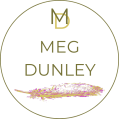
It’s nearly spring. A time for renewal. A time to step outside. The days are getting longer and the sun peeks out a little more but the crisp mornings remind us that it’s not spring, yet.
I’m away, again and finally, with my writing gang at the place that restores me with the women who bolster me, who say ‘you’ve got this’, who cheer me on. We’re all at different stages in our writing and we’ve all squirreled away into our rooms. We’re tapping on keyboards, dipping into books, scribbling in notebooks, listening to podcasts, running through the forest or napping. All of this is creative work. Even the naps.
I’m working on a new thing. It’s hard. I’ve spent so long in my last one, six years, that it’s hard to be working on something new. The last one is still so fresh in my mind. I have been spending so much time lately pitching it, submitting it. I’ve been in my protagonists’ minds for so long.
This new one feels precarious, fragile, that if I speak about it too much it might dissolve or blow away. I started working on it some time back but it is a formless thing. I have words dumped into notebooks, words dumped into a document called Draft 0. I know what it will feel like. I’ve even said it aloud to others: it’s something like The Office meets a school library meets Bridget Jones. People smile and say that sounds great. Which it does, but I haven’t written it yet. I have about 20,000 words in the document, many of which are the beginnings of scenes, character development exercises or various iterations of the plot.

When I arrived at our writing retreat, I noted down my intentions for my time away. They were huge, as usual. I have a long history of setting myself huge to-do lists that can be unreasonable. They included: morning pages every day (followers of Julia Cameron’s The Artist’s Way will know this is an important part of creativity), move manuscript forward, reflect on feedback and take notes on what could be better (manuscript I’m trying to get published), go with an ‘easy does it approach’ and leave the drama at the door, be observational like Helen Garner is in her notebooks, read, catch up on admin of writing work, move forward on the work side of my life.
I imagined I could do it all: the editing, writing, preparing for future work, thinking about the idea of creative work, walking, reading and reflecting.
By the end of the first morning, I had to revisit the list and recognise that what was most important during a time in my creative and uninterrupted bubble, was to do the planning work that would enable me to move the manuscript forward when I am back at home grabbing the moments to write in between work and life.

I have long been a pantser* and this has worked well to get words down that feel hot and urgent, but having now completed two manuscripts, I know that this also means there will be many words that won’t make the cut because they come from some tangent that the story doesn’t need. So, I decided I will tackle this new one with a more analytical approach that will hopefully allow me to move through the drafts a little faster.

I brought The Novel Project by Graeme Simsion with me and am working my way though it. It’s super useful. As I have already done so much of the thinking/brainstorming of the story and have written a few versions of the plot, I have moved pretty quickly to getting the beats down. Graeme suggests that a novel needs about 120 beats.
When I started writing down the beats this morning, I was confident that this wouldn’t take much time…my mind has been playing with this idea for a little while now. But it’s not as easy as I initially thought. I’m halfway, at the midpoint of the story. I have a skeleton of what happens from here, but I need to think about the beats to get the story there. So, it’s time for a nap. Time to have another cup of tea. Time for a walk. All of these things help. Creativity takes time and effort.
I’m reminded when I wake from my nap this afternoon and my mind makes a dramatic plunge at me about the work I need to do, that I’m choosing to write this story. That I need to take an ‘easy does it’ approach, as Julia Cameron counsels in her book Finding Water, that there is no need to be dramatic about it. So, easy does it now.
*A pantser is someone who writes without a plan trusting their instinct with the story. The panster most often needs to restructure their story a number of times and spend a lot of time in the redrafting stage. The opposite of this is a plotter who spends a big chunk of time at the front end of the writing process.

